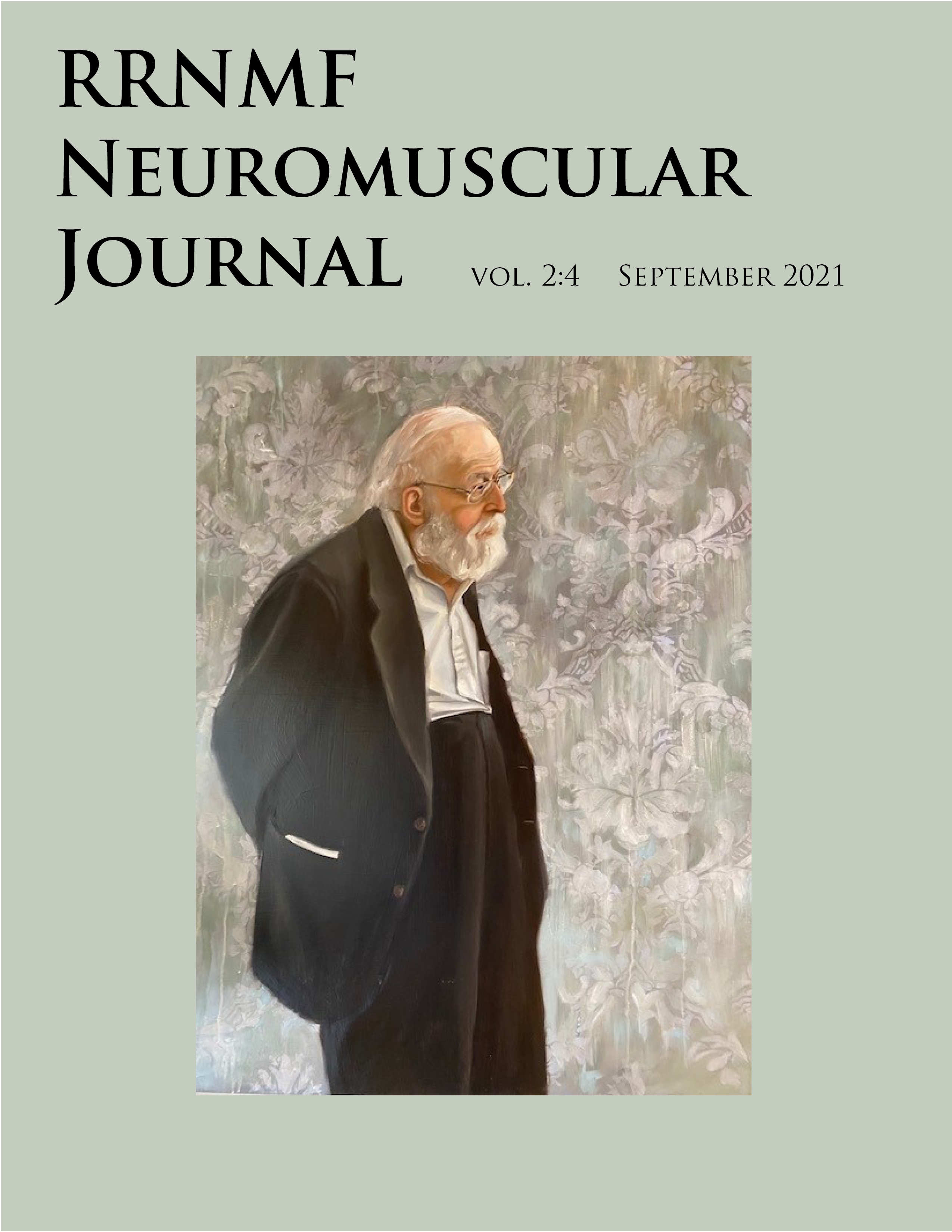Physicians Preferences of Virtual Versus In-Person Visits in Neuromuscular Clinical Practice
Telemedicine preference of neuromuscular practitioners
DOI:
https://doi.org/10.17161/rrnmf.v2i4.15456Keywords:
telemedicine, neuromuscular, physician, teleneurologyAbstract
Background:
While the role of telemedicine is well established in certain fields of medicine, its role in disciplines like Neuromuscular medicine is not clear. COVID 19 pandemic compelled the medical community to utilize telemedicine and policies were rapidly changed to continue patient care during the pandemic. However, to guide the future of telemedicine in this field where a physical exam is an integral part of the visit, it is imperative to get a physician's opinion on this matter. We designed this study to assess the opinion of neuromuscular physicians about telemedicine, their preference, and factors influencing their decision.
Methods:
We used an online form composed of eleven questions to survey 94 neuromuscular specialists across the USA and Canada during September 2020.
Results:
90.43% of participating neuromuscular specialists preferred physical visits with new patients versus 44.68% preferred physical visits with follow-up patients. The majority thought that telemedicine reduces revenue (58.51%), quality of service (57.45%), and quality time spent with patients (62.77%). Nevertheless, most surveyed physicians agreed that telemedicine is time-efficient (84.04%), improves patient compliance (70.21%), and will be a long-term solution in clinical practice (67.02%). Finally, 58.51% revealed that telemedicine does not affect workload.
Conclusion:
Neuromuscular specialists preferred seeing new patients and revealing a new diagnosis to the patient in physical visits, but they also considered telemedicine a long-term method that would continue to increase in the post-pandemic future, emphasizing the need to address their concerns to facilitate telemedicine.
Downloads
References
George BP, Scoglio NJ, Reminick JI, et al. Telemedicine in Leading US Neurology Departments. The Neurohospitalist. 2012;2(4):123-128. doi:10.1177/1941874412450716
Klein BC, Busis NA. COVID-19 is catalyzing the adoption of teleneurology. Neurology. 2020;94(21):903-904. doi:10.1212/WNL.0000000000009494
Van De Rijn M, Paganoni S, Levine-Weinberg M, et al. Experience with telemedicine in a multi-disciplinary ALS clinic. Amyotroph Lateral Scler Front Degener. 2018;19(1-2):143-148. doi:10.1080/21678421.2017.1392577
Donelan K, Barreto EA, Sossong S, et al. Patient and clinician experiences with telehealth for patient follow-up care. Am J Manag Care. 2019;25(1):40-44.
Mammen JR, Elson MJ, Java JJ, et al. Patient and Physician Perceptions of Virtual Visits for Parkinson’s Disease: A Qualitative Study. Telemed E-Health. 2018;24(4):255-267. doi:10.1089/tmj.2017.0119
Bajowala SS, Milosch J, Bansal C. Telemedicine Pays: Billing and Coding Update. Curr Allergy Asthma Rep. 2020;20(10):60. doi:10.1007/s11882-020-00956-y
Garcia-Huidobro D, Rivera S, Valderrama Chang S, Bravo P, Capurro D. System-Wide Accelerated Implementation of Telemedicine in Response to COVID-19: Mixed Methods Evaluation. J Med Internet Res. 2020;22(10):e22146. doi:10.2196/22146
Kichloo A, Albosta M, Dettloff K, et al. Telemedicine, the current COVID-19 pandemic and the future: a narrative review and perspectives moving forward in the USA. Fam Med Community Health. 2020;8(3):e000530. doi:10.1136/fmch-2020-000530
Downloads
Published
Issue
Section
License
Copyright (c) 2021 Husam Al Sultani MD, Komal Hafeez MD, Muhammed Ubaid Hafeez MD, Aziz Shaibani MD

This work is licensed under a Creative Commons Attribution-NonCommercial-NoDerivatives 4.0 International License.

